Seven on the State of Philly Poetry 2015
So I put this question out on my Facebook page: What is the state of poetry in Philadelphia? Feels like it should be an ongoing Philly forehead-feeling kind of endeavor because this here poetry scene is fluid, more than anything else. I’ve been here since 1999, and I’ve seen my share of renaissances. And then there are the ones before my time, the ones coming down the line. Folks from other cities come here to stay awhile, and they end up shifting, maybe changing the tone. Remember the year following Katrina when the Nawlins poets arrived?
Why should people care about the poetry scene in Philly? Well, for starters, we’re starting to call ourselves a “poetry city.” We just got our second Philly poet laureate; our first was Sonia Sanchez--what?! A night rarely passes in this city without a poetry reading or slam lighting it up. Just a few weeks ago, a former student of mine expressed his dismay at Philly always being New York’s bastard stepchild in terms of the arts. I told him, don’t worry, youngblood. Philly’s like the round-the-way-girl on the bus who the supermodels bite off of. Philly is always secretly on the come-up. We’ll get ours.
It’s interesting what happens when you ask poets in your “poetry city” what they think about the general state of poetry therein. Try it. For starters, most people don’t respond. You have to harass them, text them coyly and incessantly. Then some folks are a little nervous about being honest. That’s understandable. Because poets can be so nice in public and so mean in private.
Here’s my recent sampling from just a few of Philly’s poetry makers and shakers on the state of our poetry union. The verdict? We don’t all agree! Yeah, Philly’s a poetry city blowing up in 2015, but there’s still deeper work to be done.
THE SEVEN:

Leonard Gontarek, author of Déjà Vu Diner, founder of Philly Poetry Day, and leader of Making Poems That Last workshop since 2005:
It’s not at all like cat-herding. It’s like herding cat-herders.
The state is joyous. In the poems, in the readings, in the audiences. And there is a lot of it. A Lot. This is a big deal, since poets are solitary and protect their time. Not here, in Philadelphia. There’s no poetry express—poetry makes every stop.
And the level of poetry is high. Look at Iain Haley Pollock, look at A.V. Christie, look at Sarah Blake, look at Eleanor Wilner, look at Charlotte Boulay, look at Bob Perelman. Look at us all. We see it in the readings. We see it in the books of poems. We see it in the galaxy of Philly lit mags and small presses. I see it in the workshops. The poets are fierce and dedicated. Tell me what I need to know. Tell me everything. They have a terrific sense of themselves, and, I notice, a grand sense of humor. And they are not just poets from Philadelphia—they are Philadelphia Poets.
The state is active and committed. The poets and the audience for poetry come out for readings for gun control. They come out to honor Charlie Hebdo. They come out for Peace. They come out, too, to celebrate the poetry of Charles Bukowski and Emily Dickinson and Ron Padgett and Adrienne Rich.
It is what we have in common—all of us here in Philadelphia. It is our common ground and common good.
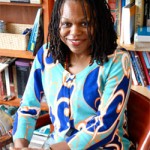
M. Nzadi Keita, author of Brief Evidence of Heaven, editor, Associate Professor at Ursinus College in Collegeville, PA:
Philly’s got many a poetry scene these days, mostly neighborhood-flavored or otherwise loosely-bound to a certain predictable demographic. It seems like more poetry is circulating but to the same communities. The central intellectual hubs, Center City and West Philly (as far as University City, anyway) benefit from a varied mix of students and resident art-makers. Manayunk has had a long-standing series. In Germantown, the Arts Roundtable and the Black Writers Museum are helping to revive that area. Runett Ebo and Victoria Peurifoy have prevailed, dishing the word for years in Mt. Airy before Big Blue Marble Bookstore and Chestnut Hill’s Musehouse multiplied the Northwest area’s options. Fewer venues cross-cut this quiet demarcation, although fortunately for the state of humanism, the Free Library readings and events often draw a more diverse audience. I would love to see more poetry energy shared in true collaborations and incorporated into neighborhood spaces, such as when the riveting Philadelphia Youth Poetry Movement (PYPM) performed at Fairhill Park in North Philly last year.
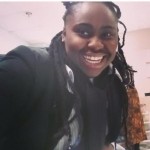
Tierra Rich, poet, teaching artist, originally from D.C.:
There's an inquisitive nature in Philadelphia's poetry state right now. Poetry has paved paths that reach youth with the desire to express their opinions and truths. I believe a lot of the eyes are on the youth to lead right now. There must be a continuous effort to push this creative art form more into the public system as a piece of daily curriculum.
![]()
Kristina Moriconi, Montgomery County Poet Laureate 2014, author of No Such Place, Director, Elkins Park Library Arthur Krasnow Poets & Poetry Reading Series
Living in a suburb of Philadelphia, I risk feeling very detached from the poetry scene in the city. It is more a problem of geography, of public transportation, though, not a lack of poets or scheduled poetry events.
There are a lot of dedicated individuals working tirelessly to organize readings and meet-ups, to publish the work of local poets, and to run writing programs. But—and I by no means intend here to lessen the value of want is happening in the city—the scene seems somewhat disconnected. Scattered. Divided, even, by neighborhood and gender, culture and race.
There are most definitely goals in common: to support and promote poetry in Philadelphia, and there are certainly people taking charge and making a difference.
But if you were to rephrase the question you asked and ask instead what I would like the state of poetry to be in Philadelphia, I suppose my answer would focus on the vision of it being more collaborative, more unified, and it would center more around the idea of outreach and the community at large (city and its surrounding suburbs).
We have so much talent and pride and so many success stories in Philly, but we seem to always remain in the shadow of New York City. I would love to see a day—and would work tirelessly to make it happen—when our creative superpowers become our legacy instead of our crime statistics and our failing schools.
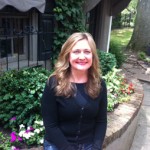
Elise Brand, English teacher at Souderton Area High School and Montgomery County Poet Laureate Program Advisory Board:
The state of poetry in my little corner of the universe, in Montgomery County, PA as an English teacher of 26 years: it is on the rise with today’s youth! There are several factors, I think, which are pushing poetry’s increasing popularity. The endurance of rap. The access that young people have to spoken poetry. Sites like YouTube, Facebook, and other social media providing opportunity for young people to learn about and share, watch and hear poetry by a diverse group of individuals. It seems to me that the mainstream perception of poetry is not as narrow today—students no longer just imagine a rhyming sonnet from a canon of literature by poets from another century when they think about the concept of poetry. They have a much broader worldview.
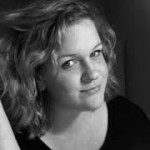
Courtney Bambrick, poetry editor at Philadelphia Stories, adjunct professor at Philadelphia University and Holy Family University:
I don't know that I have a strong sense of what is up these days. I just know that I feel terrible all the time for missing events. There are so many circles and pockets that overlap and intersect—but I feel like there ought to be more of that collaboration and intersection. People involved in one series might never meet or hear poets in another.
We have so much bubbling and popping, and I just wish I could do everything! The vibrant, amazing community/communities make me feel inadequate because so many people are doing such amazing things. I miss having a regular poetry home. My attention is scattered among lots of groups without really having my own group (especially after ending my MFA).
I am also just exhausted by April! I haven't been writing as much as I have been grading, attending meetings, and administrative things like that. I feel less like a poet than I used to—when I used to attend things more frequently. It's like when people in Philly go to Olive Garden or Starbucks when there are so many great hometown restaurants and cafes. But the matter of convenience and access make the decision for me. I end up hanging out in my familiar circles—or not going out at all.
Thank goodness for Facebook and Twitter—being newly suburban, I feel like at least I know what I'm missing. But maybe without Facebook and Twitter, I wouldn't feel so inadequate!
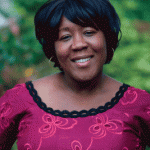
Trapeta B. Mayson, author of She Was Once Herself and Executive Director of Historic Germantown:
Answering this question depends largely on what one believes poetry should do or be. Besides its ability to inspire, illuminate, provoke, stimulate and beautifully capture big and small experiences, poetry, in my opinion, should be accessible. I think many people are writing, fewer are reading the works of others and taking the time to hone their skills and even less are intentionally creating work that speaks to the larger human experience. I feel that poetry in Philadelphia is much like the way services and initiatives in the city seem to be focused today; pour all the attention and resources into the areas that the "tourist" sees and bypass the deeply-rooted, off-the-beaten path places with rich stories to tell. In other words, the potential of this great art form and the range of voices practicing, training and creating it, goes largely untapped and unheard. Much like this absolutely beautiful city, poetry feels polarized and cliquish. Philadelphia is a cultural hotbed. People are thriving in neighbors beyond the glitz and lure of the popular spots, and these are the people I want poetry to reach, but I want great poetry that is not only cool and clever, but unique, non-gimmicky, not abstract or so experimental that it turns people off. Poetry, in my opinion, should be productive, it should "do something," not just simply dress up, look fine and stand there. Poets have the ability to cultivate this art form in our city. In order to do this, it must be about the poetry not just the personality or presentation. Somewhere between the cultural elitist who anoint some as "poets" and the folks who think that writing is not a discipline and push anything on the public, live those who know and get it...I want to hear more of those voices. I am a practicing poet with lots more to learn and much to say. I've learned you have to create your own opportunities because the velvet rope parts only for a few.
Poet Yolanda Wisher was born in Philadelphia and raised in North Wales, Pennsylvania. She earned a BA...
Read Full Biography

